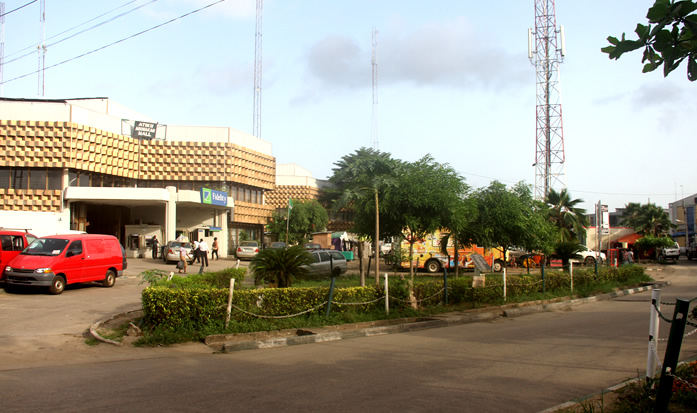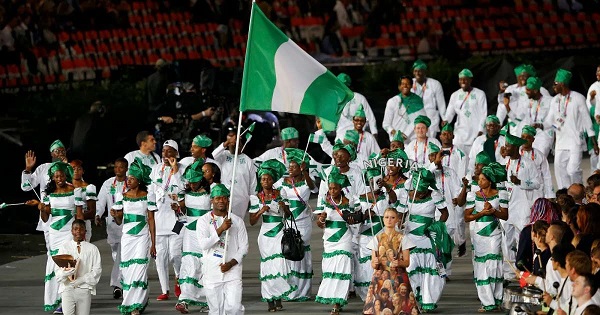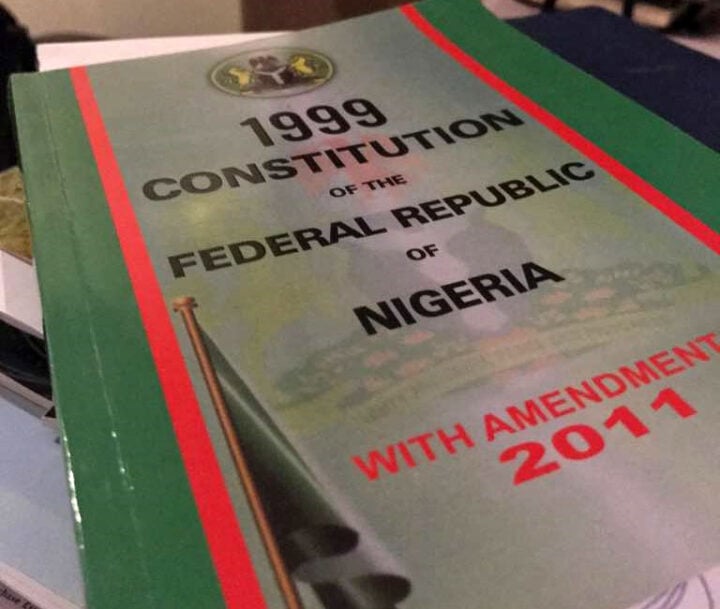BY SISAA AGBOH
The once burgeoning Lagos International Trade Fair Complex (LITFC) has been in the news lately for the wrong reasons. It is apt to address the dog whistle campaigns that have emerged in the wake of the recent revocation of the concession of LITFC granted to Aulic Nigeria Limited by the Federal Government.
At its meeting of August 22 and 23, 2017, the National Council on Privatisation (NCP), chaired by Vice President Yemi Osinbajo, revoked the concession over LITFC, and ordered its secretariat, the Bureau of Public Enterprises, to commence another privatisation exercise that will lead to the emergence of another concessionaire. Professor Nick Ezeh is the promoter and Chairman of Aulic Nigeria Limited and has raised concerns and pushed misleading information with his intervention over the revocation in the media.
The Federal Government had to intervene because it could not afford to allow a key national asset to deteriorate in the manner that it has since Aulic Group took over as concessionaire. We, therefore, wish to apprise the public of the facts that premised the government’s intervention.
Advertisement
The NCP approved the concession of LITFC in 2007 to Aulic (the concessionaire). The concession of the 322 hectares of land in LITFC was given at a lease fee of N40 billion to be paid over 30 years. The Concession Agreement was signed with Aulic Nigeria Limited on June 29, 2007. Aulic Nigeria Limited paid an entry fee of N200 million in 2008 and the sum of N12, 731,000.00 for the moveable assets. Since then, the company has not paid any additional fees to Government, even though it took over the complex nine years ago.
It is true that the entire complex could not be handed over to Aulic Group owing to resistance by the Traders’ Associations that had subsisting leases and the fact that Parcel B was not available for practical handover.
However, the NCP, in January 2013, took some major decisions to address the concession challenges, including a facility audit of the assets and tenants at the complex as a prelude to excising the contentious portions of the concession areas occupied by the Traders’ Associations, places of religious worships and Parcel B. The key part of the NCP intervention was that the concession contract was to be renegotiated for a new lease fee to reflect the new area.
Advertisement
Despite participating in the process that gave rise to the NCP’s decisions, Aulic Nigeria Limited immediately stalled the implementation of the decisions via a petition to the House of Representatives Committee on Privatisation and filing of a law suit.
In revoking the concession, the NCP noted that the concessionaire had no standard management team in place and therefore, its corporate governance standard was very weak. Council lamented that Aulic Nigeria Ltd had made the implementation of the former’s decisions impossible while making money from illegal leases without any effort to pay the annual lease fees to the Federal Government since it took over the complex in 2007. It is apt to point out that the concessionaire is currently indebted to the Federal Government to the tune of N6, 542,172,000.
We also wish to draw the attention of the public to the fact that Aulic had sub-leased to third parties the following areas of LITFC contrary to the requirements of the Development Plan and without the approval of the Management Board as enshrined in the Concession Contract:(a)The Lawn Tennis Court, opposite Trade Fair Motel – sub-leased to private individuals;(b)Land opposite Progressive Plaza – sub-leased to Motor Dealers and Allied Products Association;(c)Land opposite ASPAMDA – sub-leased to Old Mercedes Trucks Spare Parts and Scrap Metal Dealers’ Association;(d)Land opposite ASPAMDA – sub-leased to Coker Building Materials Dealers’ Association; and(e)Land behind Trade Fair Police Station – sub-leased to Chinese Engineering Construction Company (CCECC).
Aulic’s serial breaches of the Concession Contract include the following cases:(i)Construction works that are taking place at the areas sub-leased without the approval of the Management Board; (ii)Uncoordinated toll gates manned by touts;(iii)The road network at the complex is in a deplorable state; (iv)Aulic has no standard management team in place—the lessee’s office/staff strength and structure do not show any sign of a standard, ready-to-perform management team; (v)Refuse dumps litter the estate at all times;(vi)At least three ‘Mammy Markets’ have sprung up in the complex with a lot of miscreants and hoodlums operating there; (vii)Various housing structures have been built in the complex without approval. Some of these buildings were wrongly sited either on sewer lines or almost on existing roads; (viii) A ramshackle mechanic village unbefitting the international status of LITFC was operating in the complex; and (ix) Since the handover of the complex to Aulic in 2008 till date, the exhibition halls have been in a deplorable state, compelling the Lagos Chamber of Commerce and Industry to relocate their yearly trade fair to Tafawa Balewa Square.
Advertisement
From the foregoing, it is clear that the Concessionaire has been in breach of the concession agreement; hence the government’s decision to revoke it to save the Complex from further deterioration. Rather than explain why his company failed to execute the terms of the Lease Agreement, Ezeh has decided to play the ostrich.
It must be noted that the Bureau of Public Enterprises, which serves as the secretariat of NCP, has handled concessions at Nigerian ports and most of the port concessionaries are doing very well and are paying their lease fees. Why is that of LITFC different?
Agboh is of the public communications unit of the Bureau of Public Enterprises
Advertisement
Views expressed by contributors are strictly personal and not of TheCable.
Add a comment






